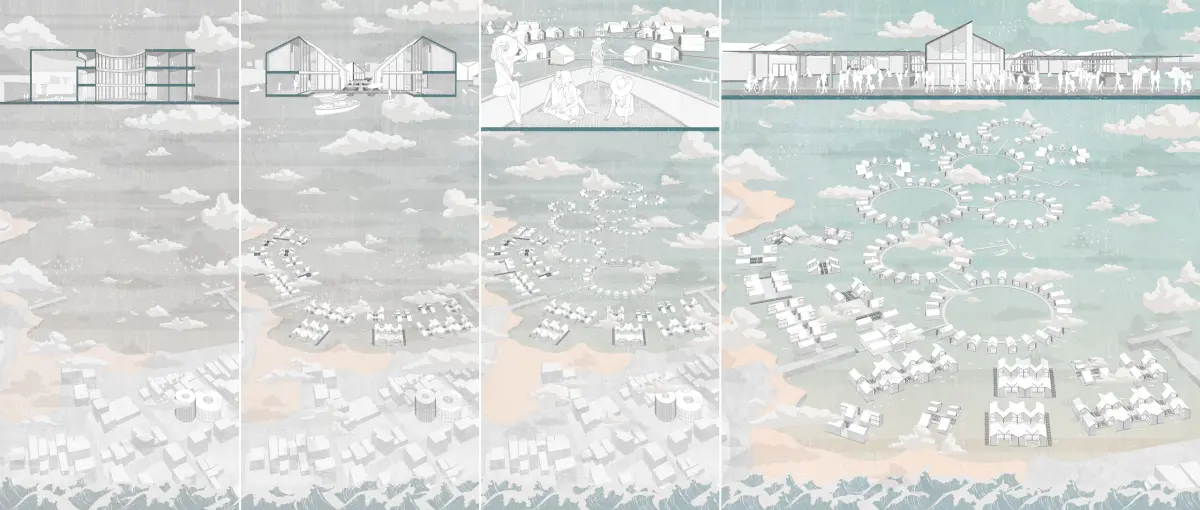
Homeless Humans: Exotics of the Natural World
BY Megan Gwee Su-Lyn
SUPERVISED BY Asst. Prof. Zhang Ye (Dr.)
STUDIO THEME ARCHITECTURE OF THE SHARING CULTURE
Abstract
The environmentalist’s dilemma describes how the environmentalist is unable to assert his reality of seeing intrinsic value in nature, for he is living in a reality that is inconsistent with the economic majority. His predicament suggests the existence of other such anomalies to hegemonic scientific thought, and forces us to consider the grounds from which such incommensurable constructs of nature have emerged. This thesis seeks to critique humankind’s inability to situate itself in the natural world, resulting in the inaptitude to properly tackle the climate crisis. Much like exotic creatures, just as the environment does not know how to cope with us, we do not know how to comply, for we have lost all sense of context and relatedness to this natural community which we are a part.
The Galapagos Islands - a fragile archipelago rife with highly complex socio-ecological issues - is used as a vehicle to demonstrate the tension between actors holding different philosophies of nature. The tension is born from these actors acting in accordance with their own beliefs as to how nature should best be treated in order to achieve their own goals. The four contemporary nature philosophies of Resourcism, Preservationism, Ecocentrism, and Postmodern Nature Philosophy are translated into bijective abstractions of four actors in the islands. Through an investigation of spatial responses in a given scenario, human-nature relationships are critically re-examined with the goal of uncovering further insight to this fateful existence.
Supervisor Comments
A critical examination of our relation with the planet earth is not only timely but also crucial right now. Beyond the common topics of climate change and urban resilience, the new insight that Megan provides us with is a philosophical criticism of our inabilities of dealing with the human-nature relation, and arguably this requires much more urgent responses from us. Through a speculative but highly realistic narrative based on the unique case of Galapagos Island, this reflection is powerfully brought up. It is hoped that this piece of work could serve as a point of departure for continuous criticism of our practice.
- Asst. Prof. Zhang Ye (Dr.)